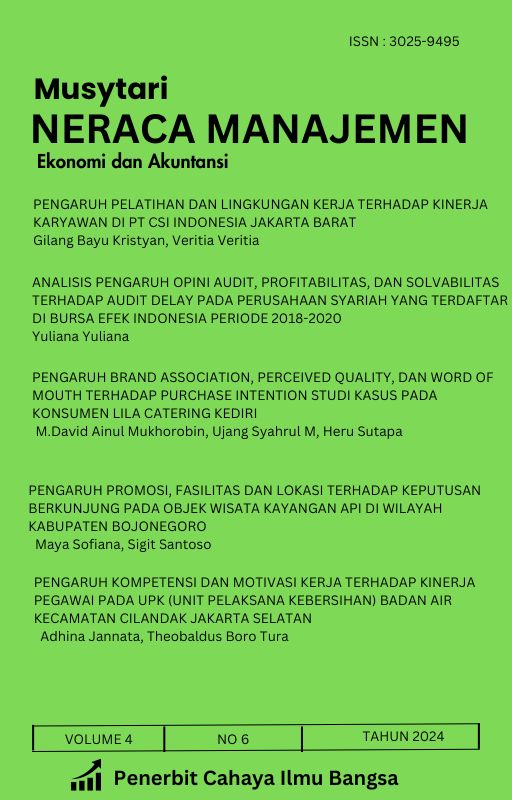PPN dalam Ekosistem Ekonomi Digital: Antara Regulasi dan Realita Pelaku UMKM di Marketplace
Main Article Content
Abstract
The growth of the digital economy in Indonesia has triggered a significant transformation in consumption and distribution patterns, particularly for Micro, Small, and Medium Enterprises (MSMEs). Marketplaces such as Tokopedia, Shopee, and Bukalapak have become essential channels for MSMEs to reach wider markets efficiently. However, this progress brings new challenges to the taxation system, particularly in implementing Value Added Tax (VAT). This study aims to explore the gap between existing VAT regulations in the digital economy and the actual understanding and compliance of MSME actors. The method employed is a literature review of various academic journals, government policies, and authoritative publications. The findings indicate that most MSMEs lack sufficient knowledge about VAT mechanisms in digital transactions and have not received adequate guidance or education from the government or platforms. Furthermore, the complexity of regulations and the lack of transparency in VAT deductions contribute to weak tax compliance. This condition not only risks reducing national revenue but also exacerbates fiscal inequality among business actors. Hence, a more collaborative, participatory, and adaptive tax strategy is required—one that includes simplified administrative processes and the implementation of automated, MSME-friendly digital reporting systems to support inclusive tax compliance.
Keywords: digital, marketplace, regulation, SMEs, VAT
Downloads
Article Details
Section

This work is licensed under a Creative Commons Attribution-NonCommercial-ShareAlike 4.0 International License.
How to Cite
References
Direktorat Jenderal Pajak. (2022). Pajak UMKM di Era Digital. https://www.pajak.go.id
Kementerian Keuangan Republik Indonesia. (2022). Peraturan Menteri Keuangan Republik Indonesia Nomor 60/PMK.03/2022 tentang Pajak Pertambahan Nilai atas Penyerahan Barang dan/atau Jasa melalui PMSE. https://peraturan.bpk.go.id
Kementerian Keuangan Republik Indonesia. (2024). Core Tax Administration System (CTAS): Transformasi Digital Perpajakan Indonesia. https://www.kemenkeu.go.id
Kirchler, E. (2007). The Economic Psychology of Tax Behaviour. Cambridge University Press.
OECD. (2020). Tax Challenges Arising from Digitalisation – Report on Pillar One Blueprint. OECD Publishing. https://www.oecd.org/tax/beps
OECD. (2023). Simplified VAT Regimes for Small Enterprises in the Digital Economy. https://www.oecd.org/tax
Putri, M. D., & Arumsari, R. (2021). Literasi Pajak Digital UMKM dan Kepatuhan Wajib Pajak di Marketplace. Jurnal Akuntansi dan Perpajakan Indonesia, 6(1), 45–57.
Siregar, Y., & Lubis, H. A. (2023). Efektivitas Sosialisasi Pajak terhadap Pelaku UMKM Digital. Jurnal Perpajakan dan Ekonomi Digital, 4(2), 101–110.
Suparno. 2000. Langkah-langkah Penulisan Artikel Ilmiah dalam Saukah, Ali dan Waseso, M.G. 2000. Menulis Artikel untuk Jurnal Ilmiah. Malang: UM Press.
Wahab, Abdul dan Lestari, Lies Amin. 1999. Menulis Karya Ilmiah. Surabaya: Airlangga University Press.
Winardi, Gunawan. 2002. Panduan Mempersiapkan Tulisan Ilmiah. Bandung: Akatiga.
